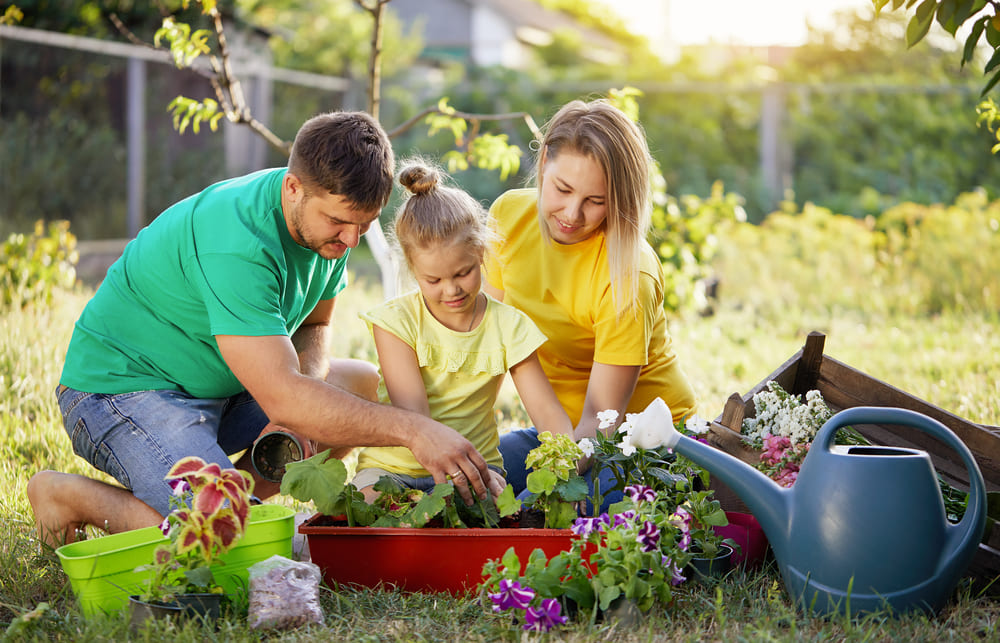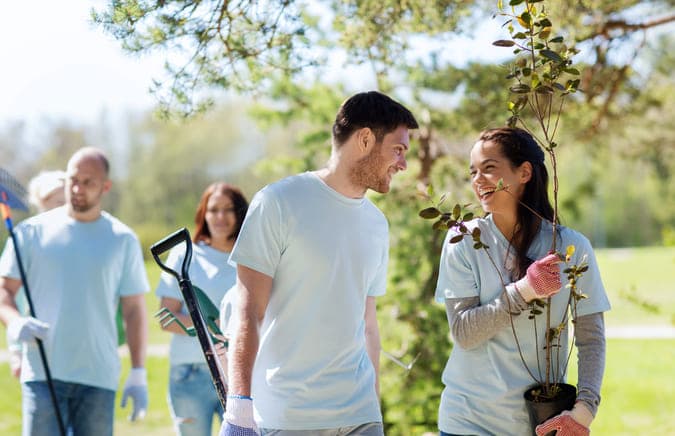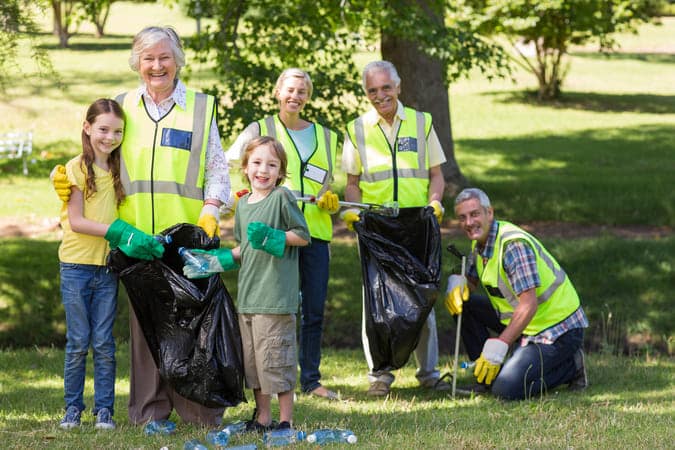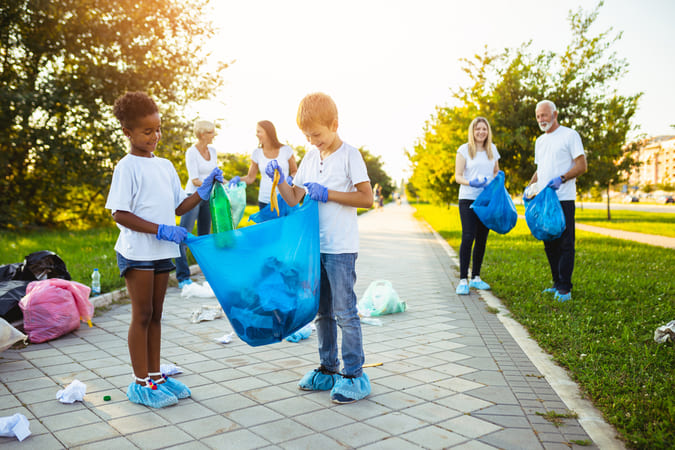Family Activities
Empowering Communities: Top Volunteer Ideas for Families

In today’s fast-paced world, finding meaningful ways to spend quality time with loved ones can be a challenge. Yet, there’s a solution that brings families closer and benefits the wider community: volunteering.
Exploring volunteer ideas for families offers a unique opportunity to bond, teach core values, and make a tangible difference in the lives of others. Let’s get into this guide to discover how your family can embark on a fulfilling journey of giving back, creating lasting memories, and strengthening community ties.
KEY TAKEAWAYS:
- Volunteering as a family bolsters bonds through shared experiences and enhanced teamwork.
- It imparts core values, teaching children empathy and the essence of helping, shaping their character.
- Furthermore, it nurtures a deepened sense of community belonging.
WHY VOLUNTEER AS A FAMILY?

When families serve together, they uplift others and themselves. The benefits are numerous:
- Fostering collaboration and unity.
- Instilling values like empathy, compassion, and kindness.
- Immersing in the community, nurturing belonging, and commitment to others’ well-being.
Looking for volunteer ideas? From local food banks to animal shelters to environmental conservation, there’s something for every family. Let’s explore how to get started, the benefits, and some practical ideas for family volunteering.
True story: One family decided to volunteer at a local soup kitchen every month. They witnessed firsthand their impact on the lives of those less fortunate. The children learned about gratitude and compassion, and the parents saw their children grow into loving, empathetic individuals.
Volunteering as a family became a cherished tradition that brought them closer together and reinforced their values of generosity and kindness.
Activity: Suitable Age Group – Benefits/Lessons Learned
- Local Food Banks: All Ages
- Benefits: Compassion, Understanding of Food Insecurity
- Community Clean-Ups: 5 and up
- Benefits: Environmental Awareness, Community Service
- Animal Shelters: 6 and up
- Benefits: Kindness to Animals, Responsibility
- Nursing Home Visits: All Ages
- Benefits: Empathy, Understanding of Elderly Needs
- Youth Center Assistance: 10 and up
- Benefits: Mentorship, Leadership
- Environmental Conservation: 8 and up
- Benefits: Environmental Stewardship, Impact of Individual Contributions
- Habitat for Humanity Projects: 12 and up
- Benefits: Teamwork, Housing and Shelter Awareness
BENEFITS OF FAMILY VOLUNTEERING

From deepening family ties, imparting core values to their children’s hospital there, to fostering a sense of community, the impact of volunteering together is vast.
Dive with us into this transformative experience of unity that brings joy and compassion!
Building Stronger Family Bonds
Whether it’s volunteering at local food banks, participating in community clean-up events, or visiting nursing homes, these shared experiences create lasting memories and deepen the connections within the family unit.
Families and friends can cultivate a sense of unity and strengthen their relationships by working together towards a common goal and seeing the impact they can make as a team.
After exploring these volunteer ideas for families, why not also consider ways to strengthen family bonds at home? Check out our article on ‘Games for Family Get-Togethers‘ for fun and engaging activities that everyone will enjoy during your next family gathering.
Teaching Core Values To Children
Participating in family volunteer activities fosters children’s empathy, leadership skills, and compassion while highlighting the value of kindness and community contribution.
It allows parents to model positive behaviors and values, reinforcing them in their children.
Moreover, by participating in volunteer projects that align with their family’s values, parents can actively teach their children about the importance of kindness, respect, and social justice.
It is a proven fact that research shows children who engage in volunteering activities are more likely to become active and engaged citizens in adulthood.
Instilling A Sense Of Community
By actively participating in community activities, families can effectively cultivate a spirit of empathy, compassion, and responsibility towards others.
Here are some natural ways to foster a sense of community through family volunteering:
- Joining community clean-ups, such as enhancing neighborhood cleanliness and cultivating local pride.
- Supporting animal shelters, showing care for animals and championing animal welfare.
- Engaging in nursing home visits, such as brightening elderly residents’ days through companionship.
- Helping at youth centers or schools to support education and mentor young students.
- Offer support to educational programs and serve as mentors to younger students.
- Participate in tree planting, beach clean-ups, or recycling for environmental protection.
- Helping in building or fixing homes and promoting community stability.
VOLUNTEER IDEAS FOR FAMILIES

Looking for ways to make a meaningful impact as a family?
You can explore opportunities to assist at animal shelters, volunteer in nursing homes and local hospitals to help out at youth centers or schools, do community service ideas to support environmental conservation efforts, and even get involved in Habitat for Humanity projects.
Volunteering At Local Food Banks
Here are a few reasons why volunteering at your local library, senior centers or food banks is a fantastic volunteer idea for families:
- Volunteering at local food banks, families play a crucial role in providing meals to individuals and families facing food insecurity.
- Engaging in volunteer work at a food bank allows families to educate their children about the issues of hunger and poverty.
- Volunteering together as a family to sort, package, or distribute food fosters a sense of unity and teaches the value of cooperation.
- Through volunteering, children can witness the challenges faced by others and develop empathy and gratitude.
- By volunteering at a local food bank, families strengthen community ties and promote social responsibility.
KinVibes Pro-tip: Before starting your volunteer work, it is advisable to contact the local food pantry or bank to inquire about their specific needs and any age restrictions for volunteers.
Participating In Community Clean-Up Events
Participating in community clean-up events as a family is a rewarding way to positively impact the environment and teach children about responsibility and community involvement. These events involve activities like picking up trash, planting trees, and restoring green spaces.
By volunteering together, families can bond over a shared purpose and instill values of environmental stewardship in their children.
It also provides an opportunity for kids to learn about the importance of participating in community clean-up events, and keeping their community clean and beautiful.
Participating in community clean-up events is a practical and accessible way for families to contribute to a cleaner and greener future.
While volunteering as a family is a wonderful way to instill values and strengthen bonds, it’s also essential to recognize the unique contributions of each family member. Dive deeper into the invaluable influence of the older generation by reading our piece on the ‘Role of Grandparents in Child Development.’
Assisting At Animal Shelters Or Rescue Organizations
Assisting at Animal Shelters or Rescue Organizations is a meaningful way for families to volunteer together and positively impact the lives of animals in need.
Here are some ways to get involved:
- Walk and play with shelter dogs to provide exercise and socialization.
- Help with cleaning kennels and providing general care for animals.
- Assist with feeding and grooming animals.
- Participate in adoption events and help find forever homes for animals.
- Donate supplies such as food, toys, and bedding to support the shelter.
KinVibes Pro-tip: Before volunteering, check with the organization for age requirements and any necessary training or orientation sessions.
Visiting And Volunteering In Nursing Homes
Visiting and volunteering in nursing homes is a meaningful way for families to give back to their community and make a positive impact on the lives of elderly residents.
By spending time with the elderly, families can provide companionship and emotional support, which can greatly enhance their well-being. Children who volunteer in nursing homes learn important life lessons early, such as empathy, compassion, and respect for elders.
Activities can include reading to residents, playing games, or simply engaging in conversation.
The experience of volunteering in nursing homes allows families to create lasting memories while making a difference in the lives of others.
“After my grandmother moved into a local nursing home, my family began volunteering there. We noticed many residents longed for social interaction. Our extended visits, whether sharing stories, playing cards, or holding hands, brought immense joy to them. These acts not only uplifted the residents but also deepened our family bond, underscoring the value of compassion and kindness.”
Helping Out At Local Youth Centers Or Schools
Local youth centers and schools offer a ton of opportunities for families to raise money, get involved and make a tangible difference.
Whether it’s tutoring students to bolster their academic achievements and personal growth, assisting in after-school programs to ensure children have a safe and stimulating environment, or taking the lead in organizing workshops that hone skills and spur creativity, there’s always a way to contribute.
Many families also find fulfillment in supporting educational endeavors through fundraising for essential programs, donating much-needed art supplies and books, or even volunteering their time as chaperones for various school activities. Additionally, joining parent-teacher associations or advisory boards can be a great way to have a say in the educational decision-making processes.
Supporting Environmental Conservation Efforts
- Participate in local beach or park clean-ups to help preserve natural habitats.
- Plant trees in your community to combat deforestation and improve air quality.
- Reduce waste by practicing recycling and composting at home.
- Support wildlife conservation organizations by volunteering or donating.
- Educate yourselves on environmental issues and advocate for sustainable practices.
Overall, by engaging older kids in these activities, you can teach your younger children the importance of environmental stewardship and make a positive impact on the planet.
Getting Involved In Habitat For Humanity Projects
Participating in Habitat for Humanity projects lets families enhance their community while fostering empathy, teamwork, and social responsibility in their children.
- Help build affordable housing and gain practical skills.
- Aid in organizing and streamlining volunteer tasks.
- Organize events or campaigns to fund projects.
- Families can contribute by organizing fundraising events or campaigns to raise funds for Habitat for Humanity projects.
- Promote Habitat’s mission and advocate for affordable housing locally.
While family volunteering strengthens ties, the bond between siblings is equally vital. Get a deep dive into this topic in our article on ‘The Art of Fostering Sibling Bonding.’
TIPS FOR GETTING STARTED WITH FAMILY VOLUNTEERING

This section will explore your family’s interests and passions for researching local volunteer opportunities. We’ll also discuss setting realistic expectations, starting small, and gradually increasing your involvement.
Discuss Interests And Passions
Discussing interests and passions is a vital first step in embarking on a journey of family volunteering. This allows each family member to bring forth their distinctive skills and talents to a cause that ignites their fire.
By doing so, not only enhances motivation and involvement, but it also nurtures a profound sense of personal satisfaction. It is essential to promote open and genuine conversations regarding the interests and passions of each family member.
These inclinations can span from the welfare of animals, the preservation of the environment, or the support for the elderly.
By comprehending everyone’s interests, you can discover volunteer opportunities that resonate with those fervors and forge a more meaningful and enjoyable experience for each family in need.
Research Local Volunteer Opportunities
- Check with non-profit organizations or community centers in your area to see if they have any available volunteer opportunities.
- Utilize online resources like volunteer matching websites or community event calendars to find volunteer opportunities in your locality.
- Contact schools, churches, or other community groups to inquire about any volunteer programs or events that you can join as a family.
- Consider the interests and passions of your family members when exploring volunteer opportunities to ensure that everyone will feel engaged and motivated.
Remember the time commitment required for each volunteer opportunity and choose ones that align with your family’s schedule and availability.
Set Realistic Expectations
Here are some tips to help you set realistic expectations:
- Match volunteer opportunities with family members’ schedules.
- Recognize any physical or emotional constraints.
- Opt for projects suiting family members’ ages and capabilities.
- Initiate brief sessions to determine your family’s comfort level.
- Be ready for unpredictability and adjust accordingly during volunteering.
Start Small And Gradually Increase Involvement
Starting small allows for flexibility and adaptability as you find the perfect balance for your whole family’s involvement.
- Identify a cause that resonates with your family’s values and interests.
- Research local volunteer opportunities related to that cause.
- Start with short, one-time volunteering activities to test the waters and start small.
- Assess your family’s availability and commitment level.
- Gradually increase the frequency and duration of your volunteering commitments.
- Reflect on the impact of your efforts and share the experiences with your family.
Remember, the goal is not to worry about your busy family schedule or to overwhelm yourselves but to cultivate a sustainable volunteering habit that brings your family together while making a difference in your community.
Reflect And Share The Experience
After each volunteering activity, take time as a community center family to discuss, reflect, and share the experience.
Share feelings, thoughts, and observations about the impact made and the valuable lessons learned. This reflection process helps reinforce the values of empathy, compassion, and gratitude.
Sharing the experience with others through storytelling or social media can inspire and encourage others to get involved and make a difference. It is also a wonderful opportunity to bond as a family and strengthen relationships while reflecting and sharing.
Remember, the experience of family volunteering is not just about the act itself but also about the growth and connection that comes from reflecting and sharing the experience.
SOME FACTS ABOUT VOLUNTEER IDEAS FOR FAMILIES:
- Research indicates that even preschoolers can volunteer, positively affecting their kindness, empathy, and self-esteem.
- In the United States, the number of youth volunteers between the ages of 12-28 is nearly double the rate of adults, with 15.5 million young volunteers.
- These youth volunteers contribute a staggering 1.3 billion community service hours annually.
- Volunteering as a family sends a powerful message to children and instills a sense of altruism and giving back.
- There are numerous volunteer ideas suitable for families, such as organizing toy drives, playing with animals at shelters, planting community gardens, donating hair to Locks of Love, and participating in food banks.
FREQUENTLY ASKED QUESTIONS
What Are Some Volunteer Ideas For Families With Children Aged 2 To 4?
Collect wildflowers to brighten someone’s day, promote inclusive play, and donate to a food bank. Additionally, sort recyclables, gather change for gifts, write thank-you cards, write letters for workers or veterans, and decorate lunch bags or placemats for Meals on Wheels or nursing homes.
What Are Some Volunteer Ideas For Families With Children Aged 5 To 7?
Donate hair to Locks of Love, create an “activity box” from outgrown toys for centers like Boys & Girls Clubs, and craft toys for animal shelters while donating essentials. Additionally, gather funds for a passionate cause, exchange drawings of endangered animals for donations, set up a charity hot chocolate stand, join reading programs at local animal shelter shelters, donate books and establish a lending library with old books outside their home.
How Can Families Volunteer To Help Their Local Community Gardens?
Families can volunteer to help their local community gardens by offering to plant flowers, rake leaves, mow the lawn, pick up sticks, or even clean up trash around the garden area. They can also assist with project management, such as organizing gardening workshops or fundraising events for the community garden. Volunteering at community gardens allows families to contribute to the beautification and sustainability of their neighborhood.
What Are Some Volunteer Ideas For Families With Children In Middle School?
Middle school-aged children and their families can participate in diverse activities: grow hair for Locks of Love, run charity car washes, establish free library and pop-up libraries, tend to community gardens, volunteer at food banks, fundraise for a cause, or assist homeless shelter and at halfway houses and shelters. Such volunteering instills empathy and community responsibility.
How Can Families Make A Positive Impact On Their Community Through Donating School Supplies?
Families local organizations can uplift their community by collecting and donating school supplies for children in need. Organizing supply drives at schools, workplaces, or community centers and delivering to donation centers helps ensure children’s educational success and fosters community growth.
How Can Families Teach Their Young Children The True Meaning Of Giving Through Volunteering?
Through age-appropriate volunteer activities, families can instill in young children the essence of giving. Acts like bringing smiles, donating toys or goods, or crafting get-well cards teach children empathy and service. Volunteering together underscores kids the importance of contributing positively to the world.
Wrapping Up – Start Your Family Volunteer Journey
Volunteering as a family is more than just an act of charity; it’s a bonding experience that strengthens community ties and deepens familial bonds. Through these shared moments of giving, families not only impact the lives of others but also enrich their own.
The ripple effects inspire broader change, fostering a culture of kindness and empathy. As we consider the many ways to contribute, let’s remember that every act, big or small, shapes a brighter, more connected future. Embrace family volunteering and experience the profound impact of unity in action.
As we cover family dynamics and volunteering, understanding the foundational role of parenting becomes crucial. Our in-depth article, ‘Uncovering the Different Parenting Styles and Their Effects on Children,’ offers valuable insights into how various approaches can shape a child’s development. It’s a must-read for every parent.
